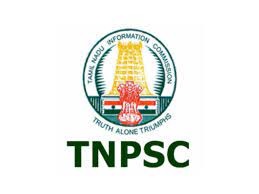TNPSC Assistant Director of Co-Operative Audit Exam Syllabus
Organisation : Tamil Nadu Public Service Commission (TNPSC)
Exam Name : TNPSC Assistant Director of Co-Operative Audit Exam
Announcement : TNPSC Assistant Director of Co-Operative Audit Exam Syllabus
Website : https://www.tnpsc.gov.in/English/new_syllabus.html
What is TNPSC Assistant Director of Co-Operative Audit Exam?
TNPSC Assistant Director of Cooperative audit is a close examination of financial transactions, maintenance of books of. accounts, documents and other records of a business and includes an inquiry into the affairs of the society in. order to ascertain the correctness of accounts and the extent to which its activities were useful in promoting.
Related / Similar Syllabus : TNPSC Social Case Work Expert Exam Syllabus

Syllabus For Co-Operative Audit Exam
The Syllabus For TNPSC Assistant Director of Co-Operative Audit Exam are given below,
Unit-I: Theory And Development Of Cooperation
Concept- Evolution of Cooperation– Different Cooperative Thoughts – ICA Principles – Cooperative Movement in India – Pre and Post Era- Recommendations of Various Committees of Cooperation- Features of plan periods.
Unit-II: Cooperative Banking In India
Concept – Evolution and Functions of Credit and Non-Credit Cooperatives (Primary, District, Apex level Institutions) – National level – RBI, NABARD, NAFCUBs, NAFED, NDDB, VITTAL and COSMOS – Cooperative Banking Regulation Act.
Unit-III: Cooperative Legislation And Administration
Cooperative legal frame work in India – Tamil Nadu Cooperative societies Act, 1983 and Rules 1988 – Multi-State Cooperative Societies Act, 2002 – Features of Cooperative management – Cooperative Administration set-up -Functional Areas of Cooperative management – Role of Registrar – Board of Directors – members.
UNIT-IV: Cooperative Accounts And Audit
Cooperative Account keeping –Double entry book keeping systems –Day book–ledger- Different types of cash books – Statement of Receipts and Payments – Balance sheet – Net profit Distribution – Nature and scope of audit- Kinds of cooperative audit- Audit programme – Verification and Valuation of various books of accounts – Duties and Responsibilities of
Cooperative Auditor- Audit defects- Cooperative Audit set-up and Administrative set-up.
UNIT-V: Cooperative Research, Education And Mis
Concept of Research – Research design and methodology – Collection of data- Analysis and Interpretation – Report writing – Cooperative Education and Training (NCUI, NCCT, NCCE and ICM) – Role of Cooperative Union – Process of MIS – MS office – E-filling system in Cooperatives.

UNIT VI: Functional Management
Management: Definition of Management – Principles of Management –
Functions of Management (POSDCORB).
Human Resource Management: Role and Functions of Human Resource
Management – Performance Evaluation Tools: Balance Score Card, Six Sigma,
360 degree appraisal and SWOT Analysis.
Financial Management: Goals of Financial Management – Decisions of
Financial Management – Capital Structure – Cost of Capital – Capital Budgeting
– Working Capital Management – Risk and Return.
Marketing Management: Functions of Marketing – Marketing Mix – New
Product Development- Product Lifecycle – Pricing Policies- Promotional
Strategies – Channels of Distribution – Digital Marketing.
UNIT VII: Legal Framework Of Business
(a) Indian Companies (Amendment) Act, 2013 – Promotion – Formation and related procedures –Types of Companies – Winding-up.
(b) Indian Contract Act, 1872 – Essential Elements of a valid Contract.
(c) Indian Partnership (Amendment) Act, 2019 – Limited Liability Partnership (LLP) Act, 2008.
(d) Industrial Laws: Factories Act, 1948 – Employees State Insurance Act, 1948 – Payment of Bonus Act, 1965 – Payment of Gratuity Act,1972.
(e) Negotiable Instrument Act, 1881.
Syllabus : http://www.syllabus.gen.in/uploads/pdf2022/2745-syllabus.pdf
UNIT VIII: Auditing And Taxation
Auditing: Auditing of different types of undertakings – Education, Hospitals,
Banks, Trusts, Clubs, Municipalities – Government Department Audit – Audit
Report – Computer Aided Auditing Tools (CAAT).
Direct Taxation: Scope of total Incomes – Heads of Incomes and
computation of Taxable Incomes under various heads – Assessment of income-
tax of Individual, Firms and Companies.
GST and Customs Act: Types of GST – Rates of GST – Input Tax Credit – Reverse Charge Mechanism (RCM) – Payment of Taxes.
Customs Act, 1962: Imported goods – Levy of custom duty – Exemptions from custom duty – Baggage Rules.
UNIT IX: Financial And Corporate Accounting
Financial Accounting: Concepts and conventions of Accounting – Accounting
Standards – GAAP – IAS – IFRS – Indian AS – Bank Reconciliation Statement –
Accounting for non-profit organisations – Branch and Departmental Accounts –
Depreciation and Insurance claims – Recent developments in accounting –
Social Accounting – Forensic accounting – Computerised Accounting with
Tally – Ifhrms.
Corporate Accounting: Presentation of Financial Statements as per
Schedule-III of companies Act, 2013 – Statement of Profit/ Loss, Balance
sheet and Cash Flow Statement – Accounts of Banking, Electricity and
Insurance companies – Human Resource Accounting – Inflation Accounting.
UNIT X: Cost And Management Accounting
Cost Accounting: Nature and scope – Cost centre and profit centre – Preparation of cost sheet – Tender and quotations – Applications of Costing – Operating Costing, Contract Costing, Job Costing, Batch Costing and Process Costing – Activity Based Costing – JIT system.
Management Accounting: Meaning and Significance – Analysis and
Interpretation of Financial Statements – Ratio Analysis – Cash flow Statements
– Budgets and Budgetary Control – Marginal Costing – CVP Analysis – BEP – Applications of Marginal Costing – Variance Analysis – Material, Labour, Overheads, Sales and Profits